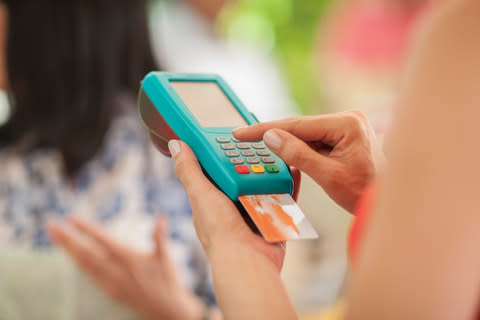How an EU ban on credit card charges could make your holiday more expensive

A big change to the way we are charged for our holidays took place last week and it has been causing a good deal of consternation and confusion.
Since last Saturday, all surcharges for paying via a credit or debit card were banned. The ban applies to all payments for any goods and services, but such charges were particularly common in the travel industry - you’d find them on the payment pages for everything from airport parking to airline booking sites and package holiday remittances, often adding two per cent or more to the cost of paying with particular cards.
The change - required by an EU directive - was brought in as an attempt to reduce prices for consumers and prevent companies from profiteering and penalising those who wished to pay by card.
There are one or two complications - you can still be charged a general booking or administration fee, but it mustn’t be linked to the way you are making your payment. And you can still be charged extra if you pay with a business credit or business debit card.
On the face of things, the new rules seem like good news for consumers. Not only can we all defer the pain of paying for our flights and holidays - at least until the next card bill arrives - but we can take advantage of the extra protection that credit cards offer, in particular the refunds they are obliged to make if an airline or company you have booked with goes out of business. And we will no longer have to pay extra to do so.

But there might be a significant downside. The travel industry, which is pretty furious about the whole thing, claims that the new rules will force up the cost of holidays. Most vocal on the issue is Aito, an association that represents mostly smaller specialist operators. It makes several points. First that the government - and the EU - is missing the point. The two per cent charge (which it says was typical across the industry) simply represented what the banks charge them for processing such payments. It is the banks, claims Aito, not the travel industry that are the villains here and this change will do nothing to force them to reduce their fees.
Furthermore, it argues, travel companies typically work on very low margins. So if operators can no longer pass the credit card charge on to their customers, they will simply be forced to increase their prices overall. And some travel agents, which work on fixed commissions may well be forced out of business altogether, or start charging administration fees for making bookings.
I’m sure there is some truth in what Aito says. Margins are tight, and some operators will certainly try to raise prices to compensate. If this happens, you could argue that those who used to pay upfront in cash or by direct bank transfer will be losing out quite a lot, while those who rely on credit cards will be gaining a little.

But perhaps, despite all the protest, the industry will find ways to adapt and we may be better off after all. There are some shining examples of companies that have long avoided card fees: Trailfinders - one of the most famous of all travel agents - charged no fees, and made the issue one of its selling points, though it cost it over £5 million a year to do so.
Whatever the impact, unless the Directive is reversed by the Brexit arrangements, it is now the law and companies must respect it. If you are paying for travel (or any other services) over the next few weeks however, don’t assume that all companies have immediately complied with the requirements. The Money Saving Expert website reported many cases this week where customers were still being charged extra for using cards, including, it said, examples of an airline and a hotel.
Have you been wrongly charged?
If you think you have wrongly been charged - or asked to pay - a fee for using a card, check that the company is aware of the change in the law and refer them to this article if necessary. If they still persist in demanding the charge, then you should inform local trading standards officers. If it is related to travel services please email us at asktheexperts@telegraph.co.uk with Card Fee as the subject heading.
Five top tips for managing your travel money
1. Avoid airports
Do not rely on buying currency at the airport. You are part of a captive market. Rates are rarely competitive with those available on the high street.
2. Use credit cards, but carefully
Generally, paying by credit card gives you a better rate than paying by debit card or cash. But this advice doesn’t apply if you are not able to clear the balance each month. The interest you pay on that balance will only add to your costs.

3. Consider a currency card
Get a competitive bank or currency card. The best pre-paid varieties now offer excellent value. I use the Monzo card (monzo.com) which charges no fees, offers near “perfect” exchange rates (ie you aren’t stung by the difference between a buy and sell rate) and allows you to always keep the balance in sterling without having to convert into a specific currency in advance. Alternatively the Halifax Clarity card is one of the best value credit cards for using overseas (halifax.co.uk/travel).
4. Lean towards the local currency
If you are offered the choice between paying a card bill in sterling or the local currency, opt for the local currency. This option is being offered more and more often - both at restaurants, shops and hotels, and at cash points. It is highly unlikely that the vendor or their bank will offer you a rate on sterling which is better than you will get automatically from the card issuer.
5. Hold on to your cash
If travelling to the eurozone, or another country that you visit regularly, keep some cash in hand and take it home with you so that you have a small float to take with you next time you visit.

